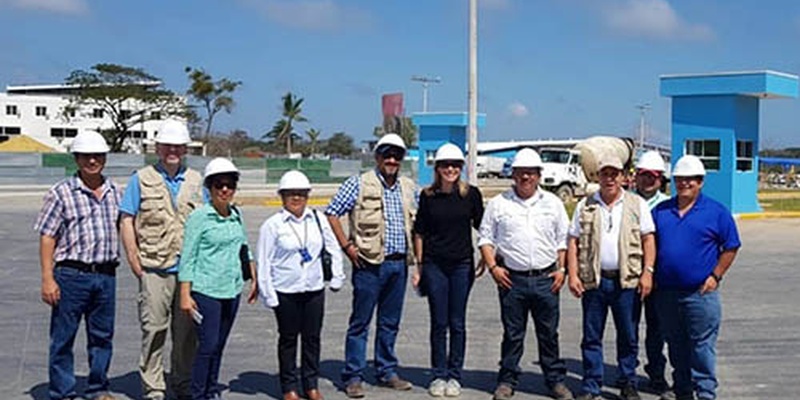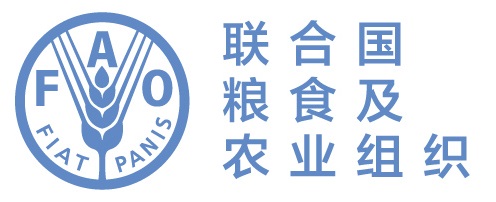Nicaragua aims for excellence in its phytosanitary system and conducts its first Phytosanitary Capacity Evaluation
Posted on Fri, 08 Mar 2019, 13:19

The Phytosanitary Capacity Evaluation team visiting the USD 40 million new border post with Costa Rica in Peñas Blancas. © IPSA
4 February 2019, Managua - In 2014, Nicaragua enacted a new phytosanitary regulation and put a strong focus on improving its phytosanitary system, as agriculture is the major economic activity in the country. Nicaragua strives to increase its market access and protect its territory. To reach this objective, the Instituto de Protección y Sanidad Agropecuaria (IPSA) in collaboration with FAO agreed to conduct a Phytosanitary Capacity Evaluation (PCE).
A PCE is a process which brings together all relevant national stakeholders to help countries identify strengths and weaknesses in their phytosanitary systems. The PCE in Nicaragua is being conducted as part of an FAO project Asistencia técnica para incrementar la eficiencia del sistema de vigilancia fitosanitario de Nicaragua (TCP/NIC/3702/C2-TCPF). The PCE is being facilitated by Francisco Gutierrez from Belize, under the supervision of Sarah Brunel, IPPC Implementation Facilitation Officer, IPPC Secretariat.
The first PCE workshop, aimed at building consensus among a wide range of stakeholders, was held from 4 to 6 February 2019 in Managua. It was opened by Mr Ricardo Somarriba, Executive Director of IPSA and Mr Iván León, FAO Permanent Representative in Nicaragua. High-level officials also attended the opening included Ms María José Corea Pérez - Minister of the Ministry of the Environment and Natural Resources (MARENA), Mr Edward Centeno - Minister of the Ministry of Agriculture and Livestock (MAG), Ms Sumaya Castillo Lara - co-director of the Instituto Nacional Forestal (INAFOR), Ms Claudia Cardenas - co-director of the Instituto Nicaragüense de Tecnología Agropecuaria (INTA), Ms Noemí Solano Lacayo - Director General of Domestic Trade (DGCI). Representatives from customs and research institutions, as well as producers, importers and exporters, were also present.
The current project to conduct a PCE is being implemented in partnership with the Organismo Internacional Regional de Sanidad Agropecuaria (OIRSA). Therefore, Mr Carlos Urías the Regional Director in Plant Health for OIRSA, and Agustin Chavarria the OIRSA representative in charge of phytosanitary issues in Nicaragua also participated. Three PCE Modules - Phytosanitary legislation, Phytosanitary import regulatory system, and Export certification, re-export and transit were completed. A PCE team was established, headed by Mr Fernando Leal and Mr Martin Rosales from IPSA, this team now has a clear work plan for completing further modules of the PCE with relevant stakeholders; and embarking on other activities such as revising the phytosanitary legislation.
Technical visits were organized on the 7th and 8th of February 2019, in particular to the new border post in Peñas Blancas. This newly built futuristic checkpoint on the border with Costa Rica includes integrated control checks by police, customs, sanitary and phytosanitary services. This modern installation is worth USD 40 million and is financed through a loan to the country and is meant to inspire other countries.

The Opening of the first Phytosanitary Capacity Evaluation mission at IPSA, Managua. © IPSA

